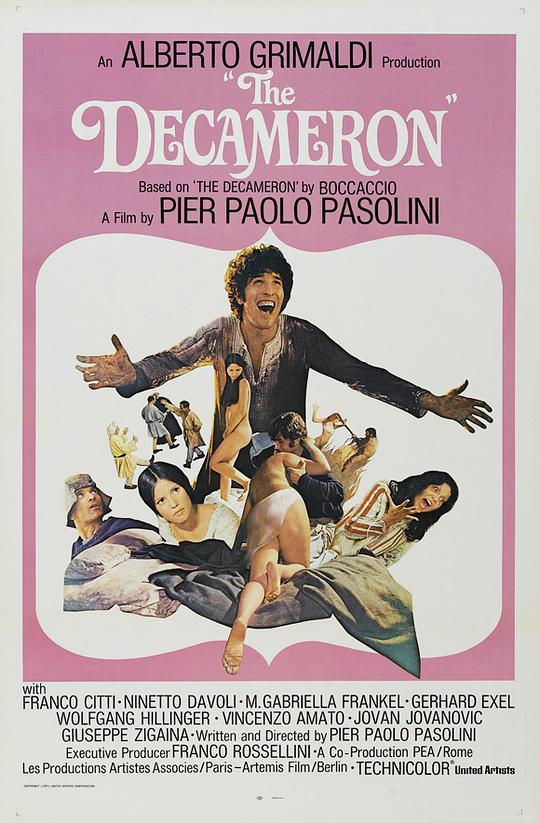Plot:
Won the Jury Award at the Berlin Film Festival. The film is based on the famous novel collection "The Decameron" by Boccaccio during the Italian Renaissance. Pasolini selected 8 (some say 10) stories that took place in Naples and other southern Italian regions for filming (the original work mainly focused on stories in the Florence area). Most of these stories are aimed at exposing the hypocritical and ugly nature of the church, and clearly show the author's positive attitude towards the liberation of human nature. The original "The Decameron" is one of the most important literary works of the Italian Renaissance. It is set against the backdrop of the rampant Black Death in the 14th century. Through 100 stories told by 10 young people, it boldly lashed out at the various ugly deeds of the Catholic Church at that time, and showed the desire of the common people to pursue freedom and get rid of religious constraints. This work with a distinct realistic style can be called a masterpiece of European classical literature, and is praised by later generations as a "human song" on par with Dante's "Divine Comedy". Pasolini, a director who rose to prominence in the late Italian neo-realist film industry, continued his creative path in the 1960s to use ancient mythology to warn people today. He adapted and filmed three classic films, The Decameron, The Canterbury Tales, and One Thousand and One Nights, in a relatively popular way, collectively known as the "Life Trilogy". Because these three films contain many nude scenes and adopt a more popular entertainment film route, some film scholars also call them Pasolini's "erotic trilogy". Pasolini himself explained his creative point of view: "I show the audience the whole world, the feudal world, in which lust plays a profound and fanatical role in dominating everything. ... I want to introduce this world and say: You can compare it, I want to show you, I want to tell you, I want to remind you."

